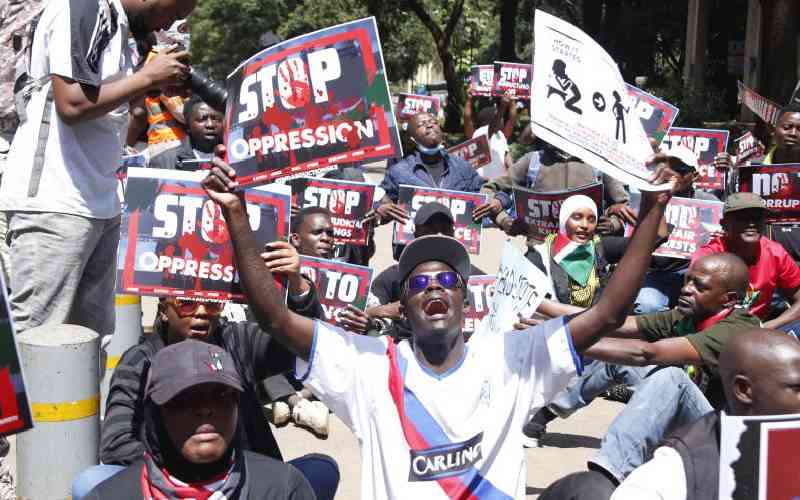Former Deputy President Rigathi Gachagua has challenged President William Ruto to be true to his word and ensure release of abductees.
He said many families are traumatised by the abduction of their children by an alleged special unit.
Gachagua spoke at Gakoigo grounds in Maragua, during the funeral service of four children who died after the house their house caught fire.
“Am repeating again that the abduction is coordinated by a unit outside the police,” he said
He warned Police Inspector General Douglas Kanja not to be misled like his predecessor Japheth Koome who resigned a few months ago.
The former DP urged to uphold the rule of the law and expose the unit a Senator Nyutu said the former DP is facing challenges owing to his love for the people after he was impeached.
Nyutu said the appointment of Prof Kithure Kindiki as Deputy President will not change the political stand of Mt Kenya people.
“The appointment of the Cabinet members from Mt Kenya will not change the political stand. Rift valley leaders should come out and condemn the abduction of the youth,” he said.
“Those who abducted the youth should release them immediately,” he added.
Maragua MP Mary Wamaua said she was being branded as anti-government for cooperating with Gachagua. After Gachagua's impeachment, the cheap liquor is back in the villages thus a culture that should be tackled,” she said.
“Prof Kithure Kindiki as the DP cannot match the work of Gachagua who was committed to serve,” said Wamaua.
She claimed that Gachagua’s allies are under threat.
On the abduction of the youth, Wamaua called for their immediate release, saying the incidents should stop.
“The children expressed their minds that they should be released, the mistake they made was drawing cartoons that imitated what is happening in the country,” she said.
Maragua MP accused the local police of failing to complete investigations into the death of the four children.
“If the family could be rich there could have been speedy investigation, which is against the rule of the law,” said Wamaua.
She said the appointment of former Governor Mwangi wa Iria and Kembi Gitura to government will not change the support Gachagua enjoys in Murang’a.
National Cohesion and Integration Commission (NCIC) Vice Commissioner Wambui Nyutu said the abduction of the youth is an undemocratic and should stop forthwith.
“The law is clear that if the youth had committed an offence they should be charged in court and due process to follow,” said Wambui.
A section of Murang’a MCAs led by deputy Speaker Gachui Mungai declared support for Gachagua.
“We are happy that the mountain has been intact and support you. But the region is annoyed over the increased abduction,” said Gachui.
NCIC Vice Commissioner Wambui Nyutu said the abduction of the youth is an undemocratic.
“The law is clear that if the youth had committed an offence they should be charged in court and due process to follow,” said Wambui. By Boniface Gikandi, The Standard







